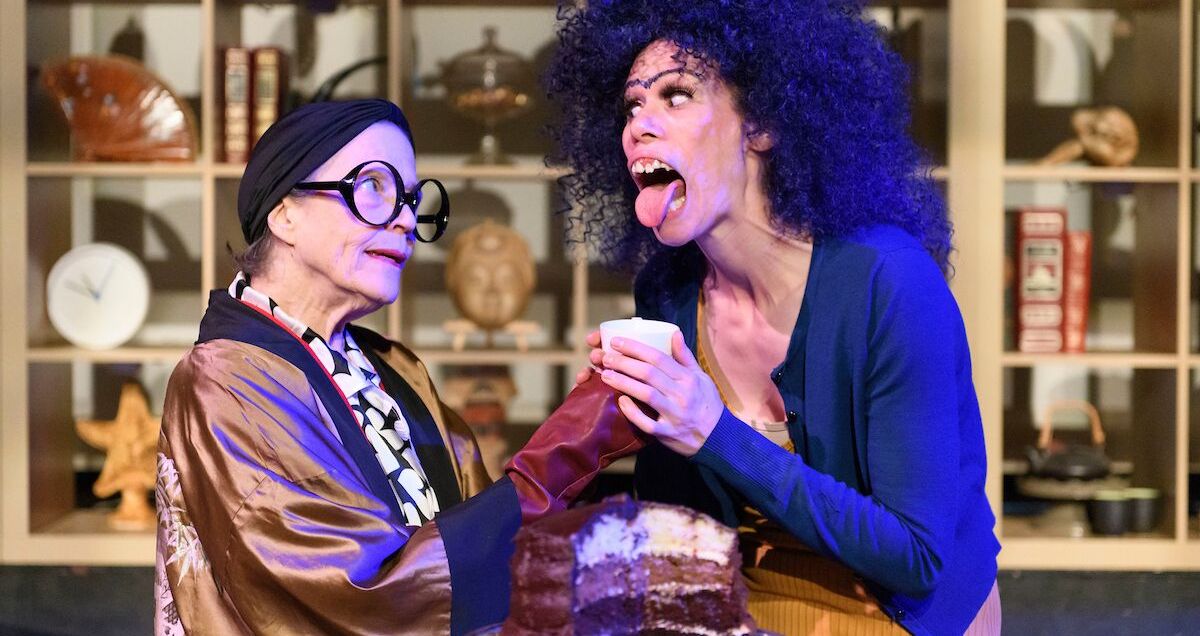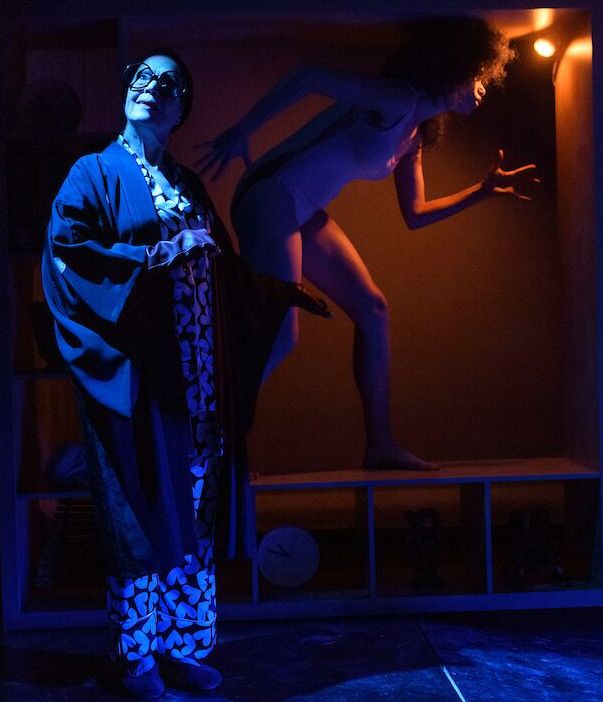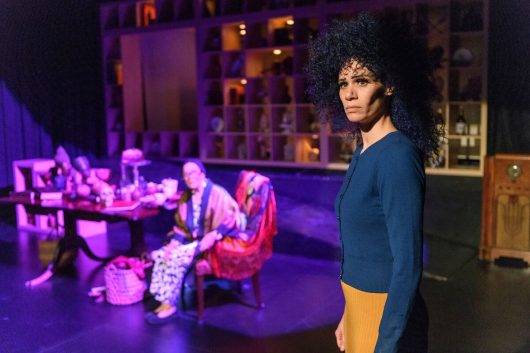Origin of the Species shows it’s time for women to take over
Posted on October 15, 2018 By Colin MacLean Entertainment, entertainment, Front Slider, Theatre
 The first thing you notice on entering the intimate Northern Light Theatre space is Trevor Schmidt’s remarkable set. It’s an eccentric collection – all sorts of objects, gadgets, small sculptures, bottles, knick-knacks, doodads and doohickeys. And clocks. Many clocks.
The first thing you notice on entering the intimate Northern Light Theatre space is Trevor Schmidt’s remarkable set. It’s an eccentric collection – all sorts of objects, gadgets, small sculptures, bottles, knick-knacks, doodads and doohickeys. And clocks. Many clocks.
At the Arts Barns’ Studio Theatre until Oct. 27, it’s a fitting setting for a play about a collector who has returned from the fabled Olduvai Gorge in Tanzania with a living artifact. The play is called Origin of the Species, a 1984 work from British feminist playwright Bryony Lavery. She was married for a good deal of her life and it was only later that she liberated her lesbian side. Her life experiences have given her a unique voice in feminist literature.
 Schmidt’s production is the first in his season of shows about women’s bodies – and what a body he gives us in his first production. First of all, it’s 4 million years old …
Schmidt’s production is the first in his season of shows about women’s bodies – and what a body he gives us in his first production. First of all, it’s 4 million years old …
Molly (Holly Turner) used to be a fervent archeologist. “I was always good at finding things,” she tells us. When she was young, she set out on her first archeological dig only to discover that is was much like “outdoor housework,” blowing the dust off centuries-old discoveries.
The first minutes of the play are all about Molly, and Turner is a remarkable actor – you may remember her performance last year in The Testament of Mary – and a real storyteller. She has an almost hypnotic way with words and draws you into her tale as if she were a grandmother telling a bedtime story. What a tale it is: the creation of the universe told as if she’d personally watched the whole thing.
The young Molly, she tells us, was in Tanzania looking for a “brave, resourceful, strong and very, very hairy man.” Instead, there in the cradle of civilization, she discovers a perfectly preserved female artifact – which she smuggles out of the country. No big deal, the authorities observed, as the finding was only a woman and of “no value.”
Molly brings the creature back to life – with a kiss – and names her Victoria (after her grandmother). Molly proceeds to pass on to this living artifact the knowledge of the centuries. Kristin Johnston (whose energized performance as Calliope pretty well stole the show in this summer’s Xanadu) plays Victoria, using some of the same physical and animated facial expressions here. Her Victoria is an absolutely original creation.
 Apparently, primordials had a larger brain capacity than they really needed, and so it is the concept of the play that a woman of the time could indeed understand the sweep of history and the complex relationships and philosophies that evolved – over 4 million years.
Apparently, primordials had a larger brain capacity than they really needed, and so it is the concept of the play that a woman of the time could indeed understand the sweep of history and the complex relationships and philosophies that evolved – over 4 million years.
Turns out that a woman really discovered fire. And tools. The logic being that the men were out fighting sabre tooth tigers.
This whole plot is playful and whimsical and requires a large suspension of belief. You go along with it, propelled by Schmidt’s hugely sympathetic and subtle direction (and Elise Jason’s amazing pinpoint lighting) – and the skill of the actors. There’s a growing fascination on the part of the audience with the process of discovery. The two performers take full advantage of the comic and philosophical elements of the story, while remaining grounded enough to generate a sense of believability. Johnston is particularly able to carry us through the trajectory of the cavewoman’s early inarticulate and confused reactions to her transformation to woman of our times. A real chemistry develops as the two alter their shifting and growing dynamic.
The sense of fun is never lost but, as the evening progresses, bigger questions arise. Literature, philosophy and theatre emerge. Violence, particularly toward women, assumes a major role. Says Molly, “When I was young it was all about men.”
There arises the pervasive thought that the dominant male species has already blown it, and that as newly born Victoria moves toward the future, that future must be forged by women.
Schmidt’s final symbolic image is a powerful one, one that you carry with you out into the Alberta night.
Photos by Epic Photography













